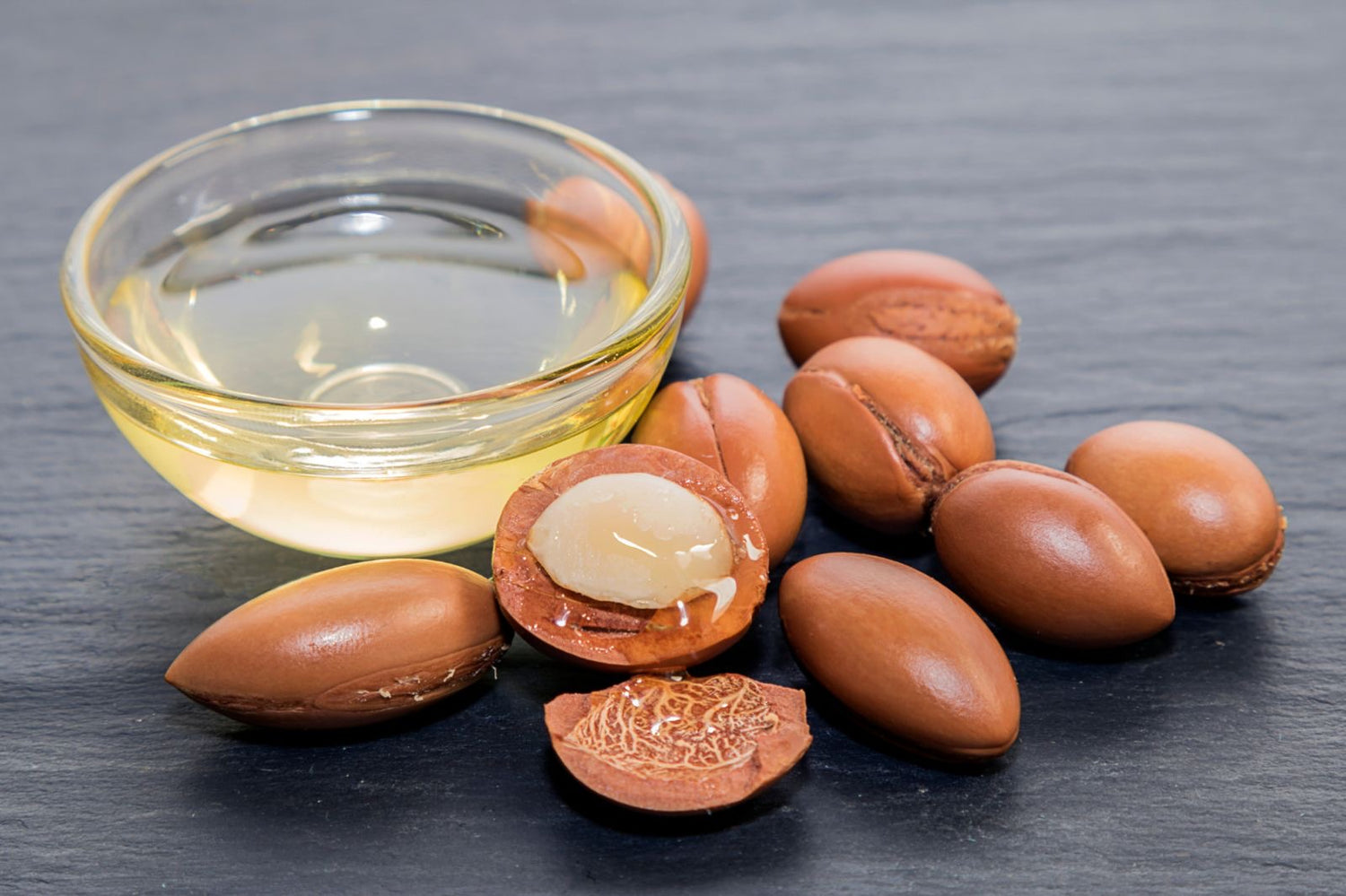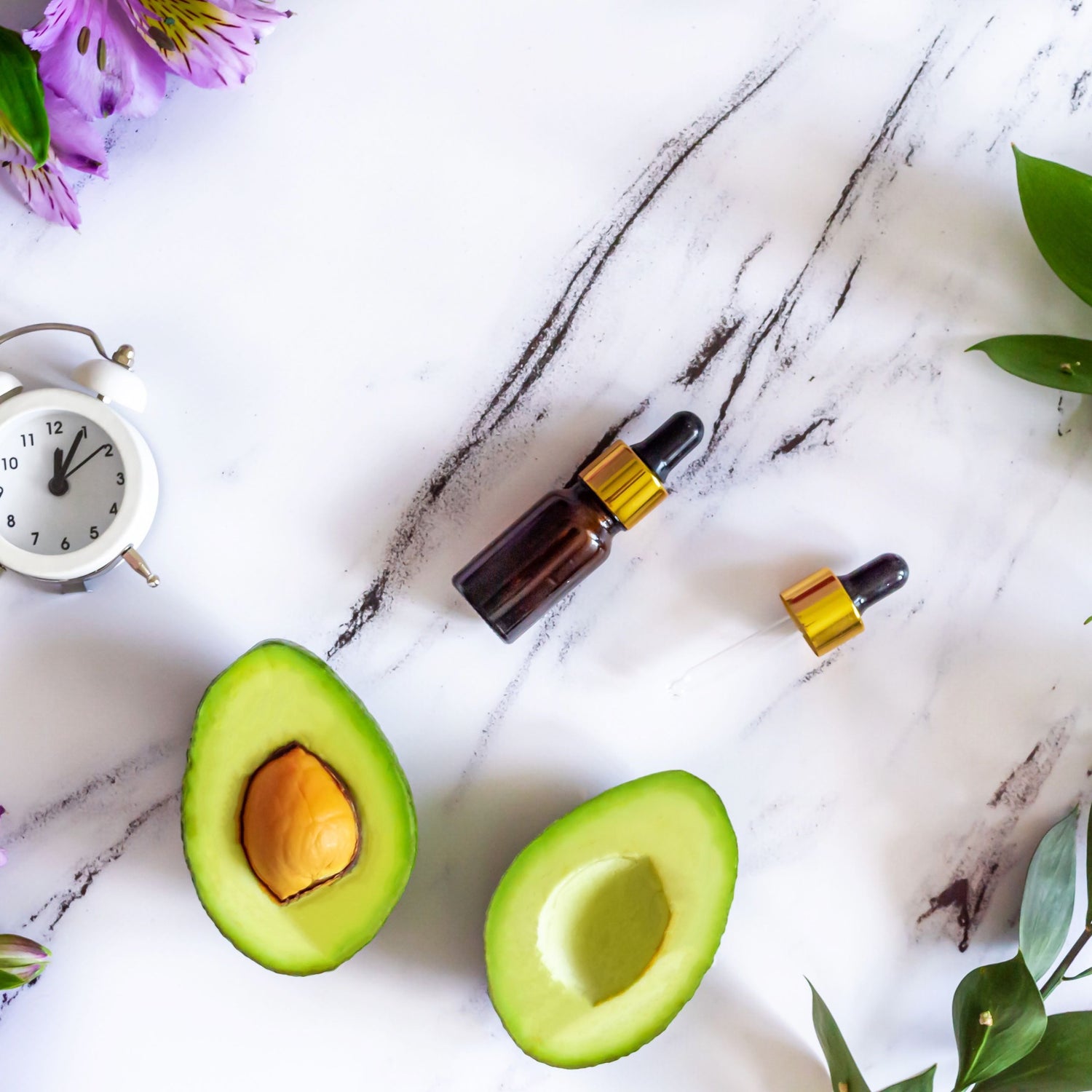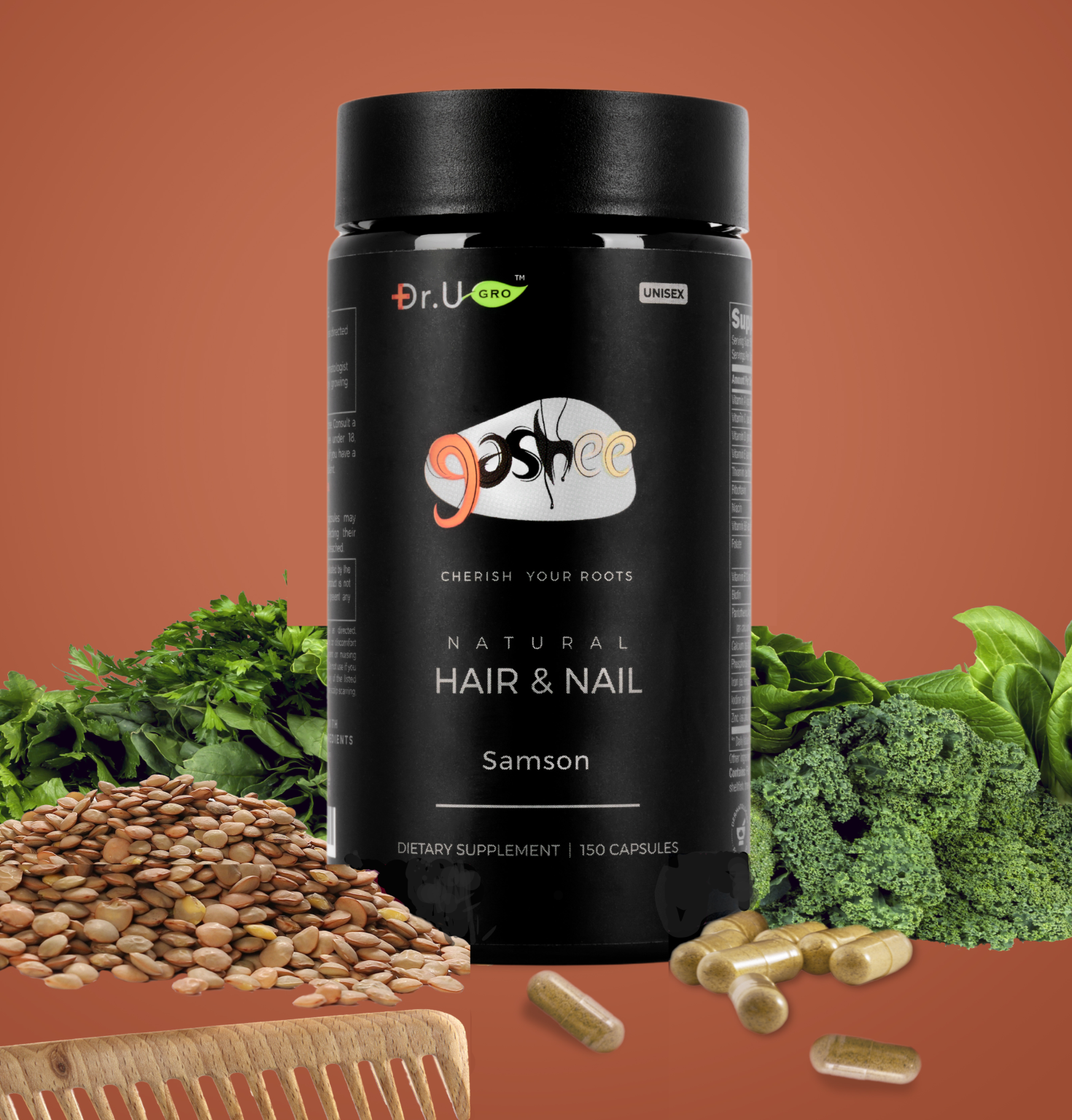Amla Fruit, which is found in the Indian Gooseberry Tree, may promote hair growth. Scientists have discovered a possible link between Amla Extract and hair growth. Amla, also known as Phyllanthus Emblica Linn (a fruit grown in tropical and subtropical areas of China, India, Indonesia, and Thailand), has been around for centuries and is well known in traditional Indian medicine. The Emblica fruit has antioxidant and anti-inflammation properties and is rich in nutrients. It contains approximately 600 to 700 milligrams of Vitamin C per fruit. This is 20 times the amount of vitamin C as grapefruit and 15 times that of a lemon. The aforementioned qualities may contribute to recent interest in a possible connection between Amla and hair growth.
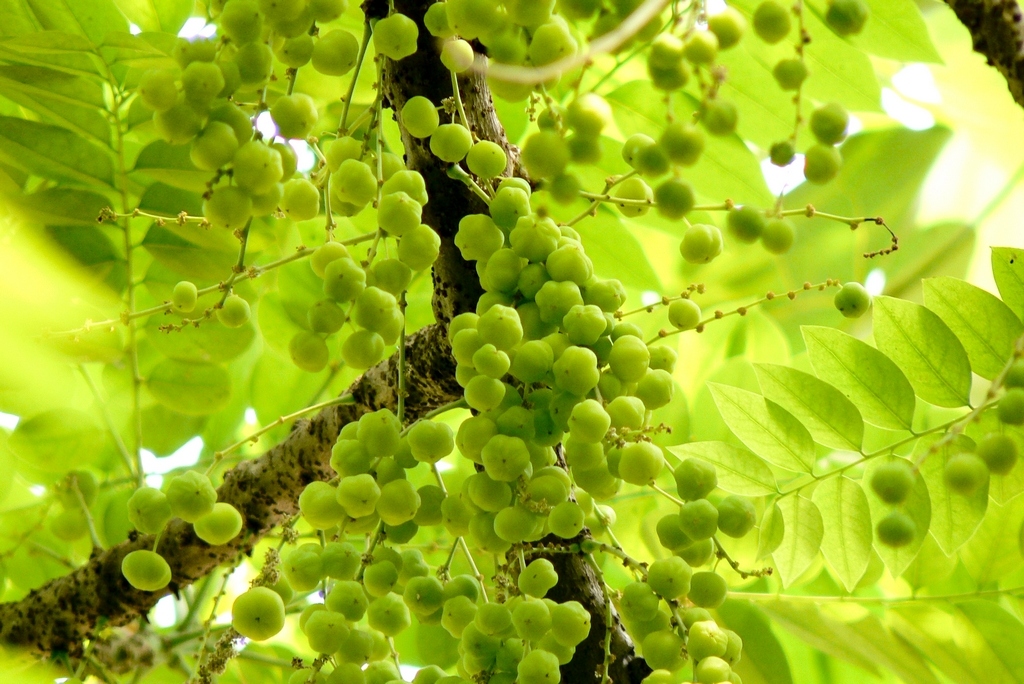
Amla Fruit, which is found in the Indian Gooseberry Tree, may promote hair growth. Scientists are studying a possible link between Amla Extract and hair growth.
Research on Amla Hair Oil Benefits
Scientists researched the benefits of the exotic fruit over the years and found that it may affect hair growth. They did a quantitative study of hair growth was done on rabbits (1). The rabbits were divided into four groups. Group A was treated with amla oil. Amla oil showed significant growth at a concentration of 7% to 8% and a higher rate than two of the other used oils. Growth was observed over 8-9 days. Another study was done to determine the effects of Amla on hair growth (2). The effects of extract in HaCaT keratinocytes and Dermal Papilla (DP) cells of human hair follicles were determined by MTT assay and cell counts. The results showed that Amla stimulated the increase in DP cells in a concentration-dependent manner and showed minimal keratinocytes. This suggested that the extract might promote hair growth by prolonging the anagen phase through the proliferative effect on DP cells.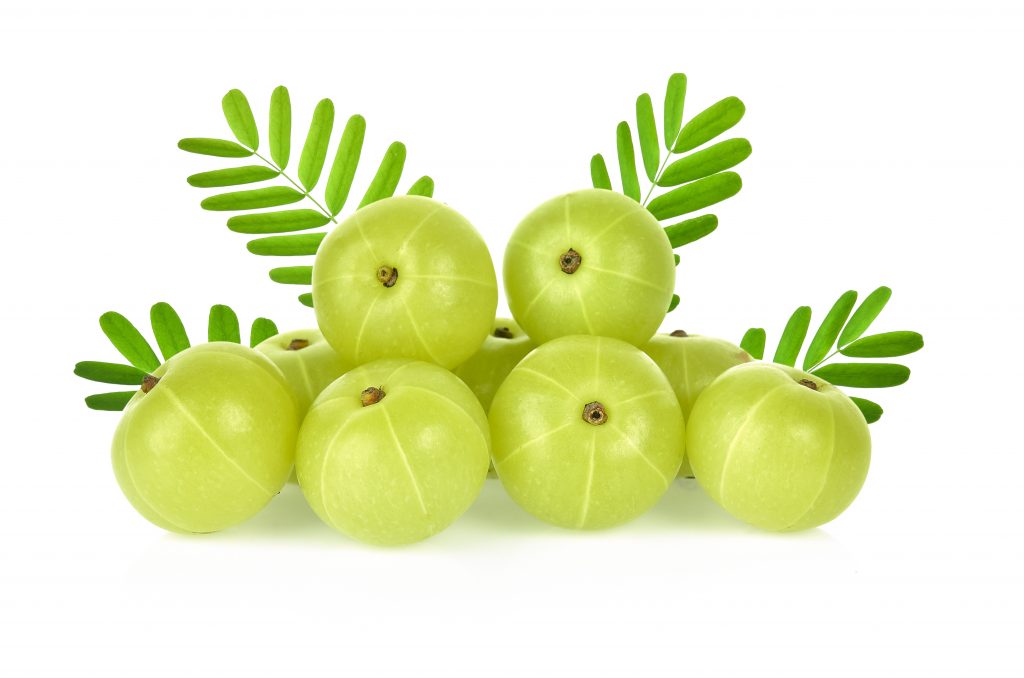 Researchers may have found a connection between Amla fruit products and hair growth in a study measuring the hair growth in rabbits (1).
Researchers may have found a connection between Amla fruit products and hair growth in a study measuring the hair growth in rabbits (1).
Possible Uses of Amla Hair Oil
Vitamin C facilitates cell division and is used by the body to produce collagen, which is a structural component of the skin and the walls of the hair follicles. Therefore it can potentially help optimize the health of these tiny structures and prevent dryness and itchiness of the scalp from improving the quality of hair. The following vitamins and nutrients are also found in Amla:
- Iron
- Calcium
- Vitamin A
- Vitamin B
- Proteins
- Fibers
- Phosphorous
- Essential fatty acids

Concerns and Side Effects
Alma is often consumed in some Asian countries as a snack or dessert. Though it is safe to eat, the fruit may cause side effects when taken in a supplement. Alma is known to possess anti-platelet properties that may cause blood to thin. Therefore, it is recommended to speak with a doctor before consuming for those with a bleeding disorder. Individuals anticipating to undergo surgery should avoid alma temporarily to prevent bleeding risks. Some studies also presented the fruit’s connection to lowering blood sugar levels. Due to this reason, people with diabetes are advised to be alert. Additionally, due to the lack of evidence surrounding its association with pregnancy, pregnant women or breastfeeding mothers should avoid consuming alma.Safety Profile
The Environmental Working Group offered additional insights on the fruit through its 10-point scale that presents its safety hazard level. Alma scored 1 (green), indicating little to no risks linked to this ingredient.All-Natural Products Containing Amla
Dr.UGro Gashee Natural Botanical Hair products are formulated, tested, and approved by Dr. Sanusi Umar, a dermatologist and hair transplant specialist. Using a blend of herbal extracts and eugenol, they are produced through a cold formulation process to avoid the destructive effects of heat. These products are effective for deeply nourishing and promoting hair growth to ensure your maximum hair health. The formula is ideal for all individuals across all ethnic groups and ages with hair concerns. It is especially effective for those suffering from hair loss caused by braids, dreadlocks, weaves, and other tight hairstyles. Click the photo below to shop now!VIDEO: Hair Products with Amla Proven to Show Results
Frequently Asked Questions - Amla and Hair Growth
Where can I get pure Amla?
Unless one takes frequent trips to India or North Africa, it can be quite difficult to get pure Amla. It is usually sold in oil and can also be found in popular shampoos and conditioners. Amla powder is also sold at most international food markets.What are the best Amla hair products?
Many amla hair products make various claims. However, the most effective hair product will likely be a carefully formulated topical hair product containing cold-pressed amla hair oil. The topical application of such a product enables a more direct route to the hair follicles and scalp.How does Amla oil for hair thickness work exactly?
According to a study published in the Research Journal of Medicinal Plants, Amla oil extract may prolong the growth phase of hair follicles by proliferating dermal papilla cells. This may help create the appearance of thicker hair. However, it should be noted that more research is needed before stating definitively that amla oil makes hair thicker.References
- Akhtar, M. S., and M. A. Jabbar. "Effect of topical application of oils of amla, coconut, Sarson, and samsol on the growth of rabbit's hair and sheep wool." JPMA. The Journal of the Pakistan Medical Association 31.11 (1981): 246-249.
- S. Luanpitpong, U. Nimmannit, V. Pongrakhananon, and P. Chanvorachote, 2011. Emblica (Phyllanthus Emblica Linn.) Fruit Extract Promotes Proliferation in Dermal Papilla Cells of Human Hair Follicle. Research Journal of Medicinal Plants, 5: 95-100.



